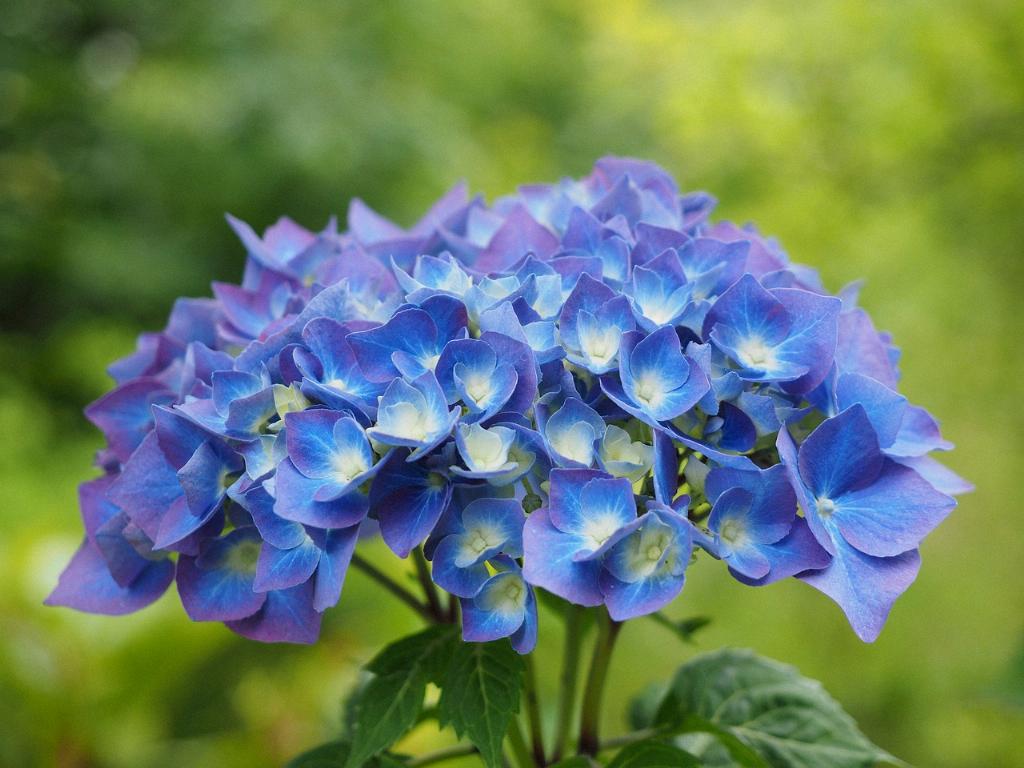One of the main reasons why your hydrangea leaves might be turning black is due to excessive exposure to strong sunlight. Hydrangeas thrive in partial shade, and too much direct sunlight can damage the leaves, causing them to turn black and wither.
Effects of Overwatering
Overwatering can also lead to blackening of hydrangea leaves. Soggy soil can suffocate the roots, preventing proper nutrient absorption and leading to leaf discoloration. Ensure proper drainage to prevent overwatering and protect your hydrangeas from this issue.
Impact of Low Temperatures
Low temperatures can cause stress to hydrangea plants, resulting in blackened leaves. Frost damage can manifest as black spots on the leaves, signaling that the plant is struggling to cope with the cold. Consider providing protection or moving potted hydrangeas indoors during chilly weather.
Possible Pest Infestation
Pest infestation, such as aphids or spider mites, can also be a culprit behind blackened hydrangea leaves. These pests feed on the plant’s sap, weakening the leaves and causing them to turn black and eventually die. Regular inspection and appropriate pest control measures can help keep your hydrangeas healthy.
Signs of Nutrient Deficiency
Nutrient deficiencies, particularly lack of nitrogen or iron, can lead to blackening of hydrangea leaves. These essential nutrients play a vital role in maintaining healthy foliage, and a deficiency can manifest as leaf discoloration. Consider using a balanced fertilizer to provide the necessary nutrients for your hydrangeas.
Effects of Water Quality
Water quality can also impact the health of your hydrangea plants. Hard water or water with high levels of certain minerals can lead to nutrient imbalances and affect leaf coloration. Using filtered water or rainwater can help maintain optimal growing conditions for your hydrangeas.
Considerations for Potting Mix
The type of potting mix used for hydrangeas can influence their leaf health. Poor-quality or compacted soil can restrict root growth and nutrient uptake, leading to nutrient deficiencies and blackened leaves. Choose a well-draining, nutrient-rich potting mix to support healthy growth.
Effects of Pruning Practices
Improper pruning can stress hydrangea plants and result in blackened leaves. Prune hydrangeas at the correct time and in the appropriate manner to encourage healthy growth and prevent damage to the leaves. Remove dead or diseased foliage to promote new growth.
Impact of Environmental Stress
Environmental stress factors such as drought or extreme heat can also contribute to blackening of hydrangea leaves. Adequate watering and protection from harsh weather conditions can help prevent leaf damage and ensure the overall well-being of your hydrangea plants.
Types of Hydrangea Varieties
It’s essential to consider the specific variety of hydrangea you are growing, as different types have varying care requirements. Some hydrangea varieties are more susceptible to leaf blackening than others, so understanding the needs of your particular plant can help address any leaf issues effectively.

Considering Planting Location
The location where you plant your hydrangeas can impact their leaf health. Ensure they are situated in a spot that receives the right amount of sunlight and shade, as well as proper drainage. By choosing an ideal planting location, you can help prevent issues like blackened leaves and promote healthy growth.
Consulting with a Gardening Expert
If you are unsure about the cause of your hydrangea leaves turning black or need guidance on how to address the issue, consider consulting with a gardening expert. They can provide valuable insights and recommendations tailored to your specific plant’s needs, helping you achieve thriving, vibrant hydrangeas.
